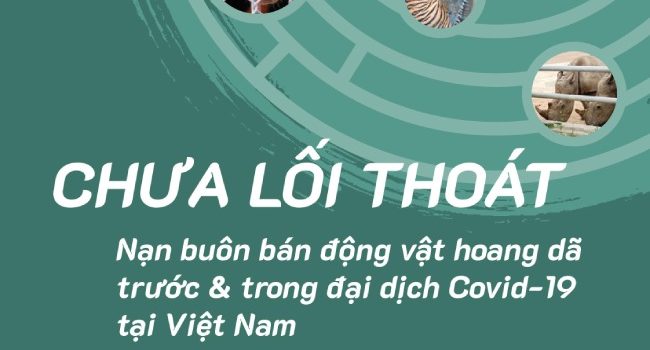On February 27, 2025, PanNature conducted an evaluation of the…

Illegal wildlife trade does not show any decline in Vietnam
In recent years, Vietnam has become one of the global hotspots for the illegal trade of wildlife. Despite efforts of the government and counterparts in combating this endemic problem, evidence shows that the illicit trade has not declined.
In response to the call for stricter regulations on wildlife trade from nature conservation
organizations to prevent future pandemics, on July 23, 2020, the Prime Minister of Vietnam issued the Directive 29/CT-TTg on urgent measures to tighten management of wildlife, including suspending wildlife import, strengthening the enforcement of laws, and the strict monitoring of wildlife farming activities at a local level.
However, field surveys and media investigations conducted by People and Nature Reconciliation (PanNature) still observed the trade of wildlife products in many localities. Several wildlife markets are still open and even selling endangered and protected species. Ivory trading is still prevalent in many cities and provinces; wildlife farming is not strictly controlled as required, potentially posing many risks of infectious diseases.
The surveys and investigations results were reflected in the report: “In the Maze: An Outlook of Illegal Wildlife Trade before and during Covid-19 Pandemics in Vietnam“. The surveys and investigations were conducted in 20 cities and provinces during 2019 and 2020, targeting areas selling ivory, tiger, turtles (products), and wild birds. According to the report, 27 out of 31 areas surveyed were found with ivory in the sale. In addition, several markets in the Mekong Delta were actively selling turtles, birds, and other wildlife, including endangered species.
“We know that most emerging diseases originated from the transmission of pathogenic agents from animals to humans. The illegal trade, transporting, and consumption of wildlife increase the interface between humans and animals, which poses the risks of spreading dangerous viruses” Mr. Trinh Le Nguyen, Executive Director of PanNature, said. “Vietnam has managed to prevent the spread of Covid-19 effectively. We hope that the Vietnamese government continues to strictly control illegal wildlife trade, specially permanently close all illegal wildlife trade locations and markets to reduce the risk of future zoonotic diseases.”
The report proposed several urgent solutions such as closure of illegal wildlife markets; stricter management of captive wildlife breeding for commercial purpose, with a credible process to define species eligible for commercial farming; control advertisement and sales of illegal wildlife trade on mass media and e-commerce platforms; encourage the media to advocate against illegal wildlife trade and consumption as food and medicine with wildlife origin.
Sincere thanks to the European Union for sponsoring us to conduct this report in Project “Partners against Wildlife Crime: Support to disrupting illicit supply chains of wildlife in Asia by leveraging civil society partnerships to increase the effectiveness of government action”.
Please access Nature.org.vn/vn for Vietnamese version.



